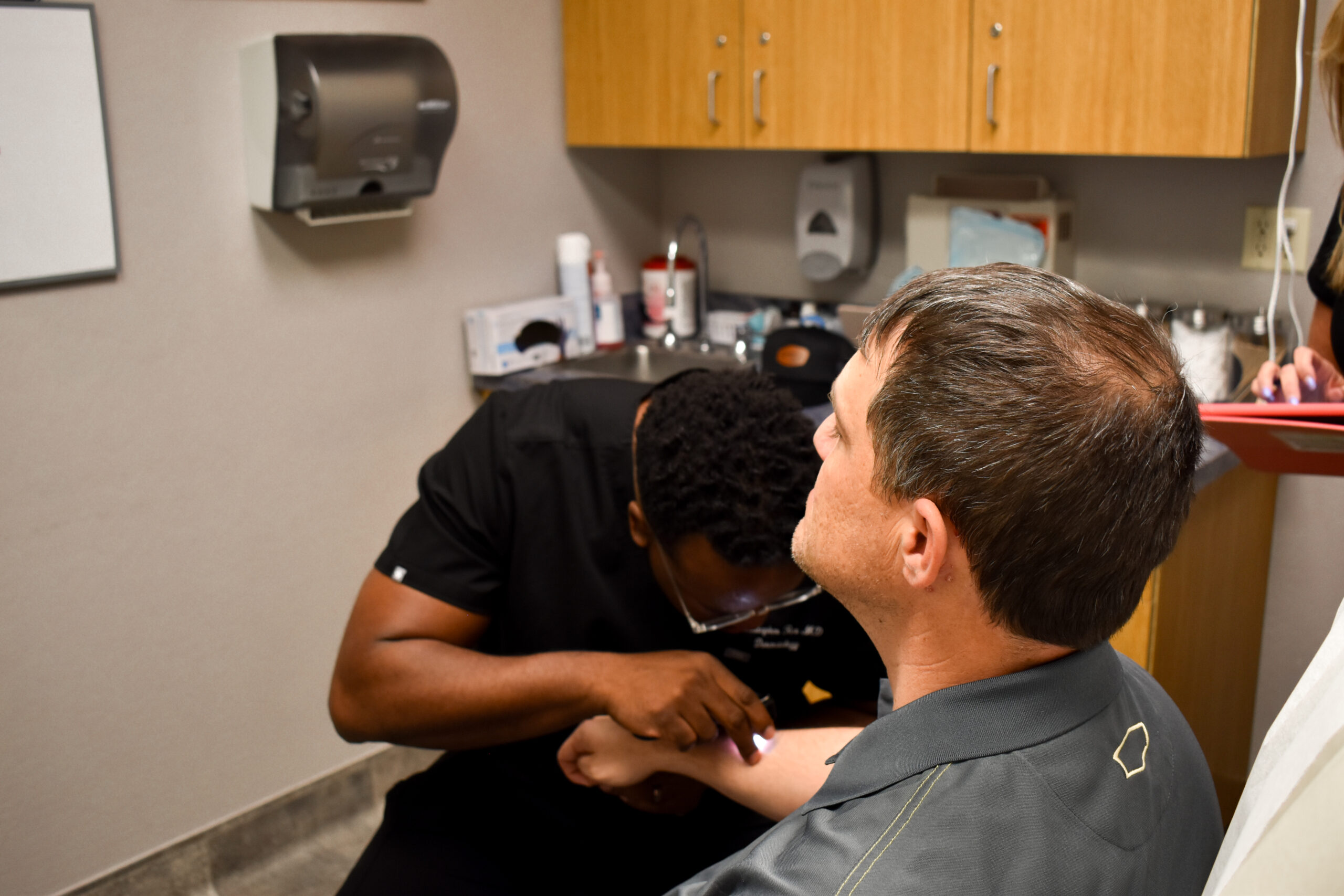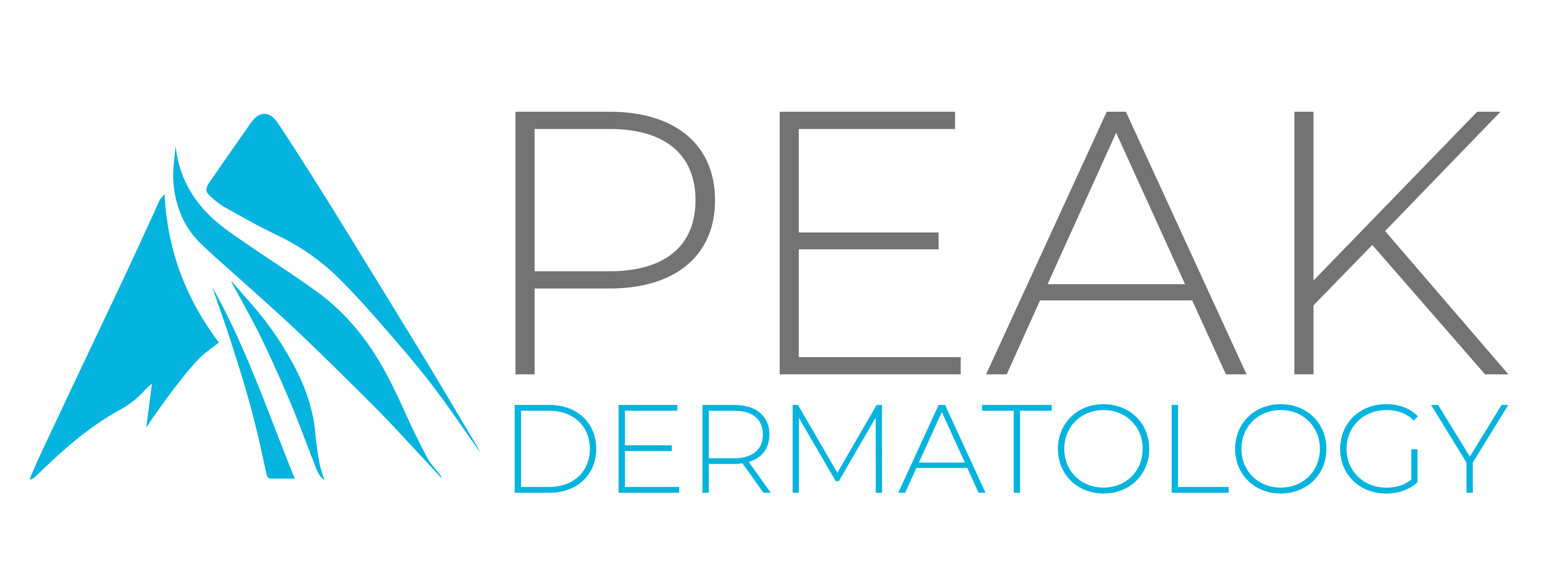Eczema
Home > Eczema
Other Services
About Eczema
Eczema represents a series of skin conditions that are caused by several allergic reactions or occasionally from the body’s response to an immune system deficiency. The result is inflammation of the skin, redness, and itchy patches similar to dermatitis. In many cases, the inflammation itself is dermatitis. This can occur anywhere on your body, including the hands, face, neck, or other regions. Atopic dermatitis is the most common type and is normally the result of an allergic reaction. This condition normally starts in childhood. At Peak Dermatology, Dr. Rex and his team of providers will try to diagnose just what is causing the aggravation so that a true treatment plan can be produced and carried out.

Treatment Options
Eczema can be treated with a selection of over-the-counter or prescribed medication and ointments. Hydrocortisone creams and ointments can be bought, as well as antihistamines, such as Benadryl, to help relieve symptoms. Prescription medications, such as steroid creams or immunomodulators, may help people who have severe eczema. An oral or corticosteroid may also be prescribed. In extreme instances, ultraviolet light therapy or laser treatment may also be applied to the affected areas. When other therapies have failed, immunosuppressants may be prescribed since these drugs suppress the immune system.
Frequently Asked Eczema Surgery Questions
Eczema
Eczema is frequently characterized by red, dry, or itchy skin, as well as persistent rashes. Normally, your skin will begin to itch before a rash shows up. Many patients experience patches of skin that are chronically itchy, dry, or thickened. These patches can appear anywhere but mostly occur on the face, neck, hands, or legs. With children, patches can appear on the inner creases of the knees and elbows. Once the skin is scratched, dry patches and open sores with crust could develop and may become infected. Severe symptoms could include pus-filled blisters or a yellowish to light brown crust developing over existing eczema patches, which might be a sign of a bacterial infection.
Eczema can be treated with a selection of over-the-counter or prescribed medication and ointments. Hydrocortisone creams and ointments can be bought, as well as antihistamines, such as Benadryl, to help relieve symptoms. Prescription medications, such as steroid creams or immunomodulators, may help people who have severe eczema. An oral or corticosteroid may also be prescribed. In extreme instances, ultraviolet light therapy or laser treatment may also be applied to the affected areas. When other therapies have failed, immunosuppressants may be prescribed since these drugs suppress the immune system.
Whether you have dealt with eczema for years with little to no relief or have just recently noticed an itchy rash and a difference in your skin, there are a lot of treatment solutions available. Employing a multilevel treatment technique that includes prevention, detection, and treatment allows you to not only manage your eczema but also notice a significant decline in symptoms. Seek relief from your eczema-related symptoms today at Peak Dermatology.

